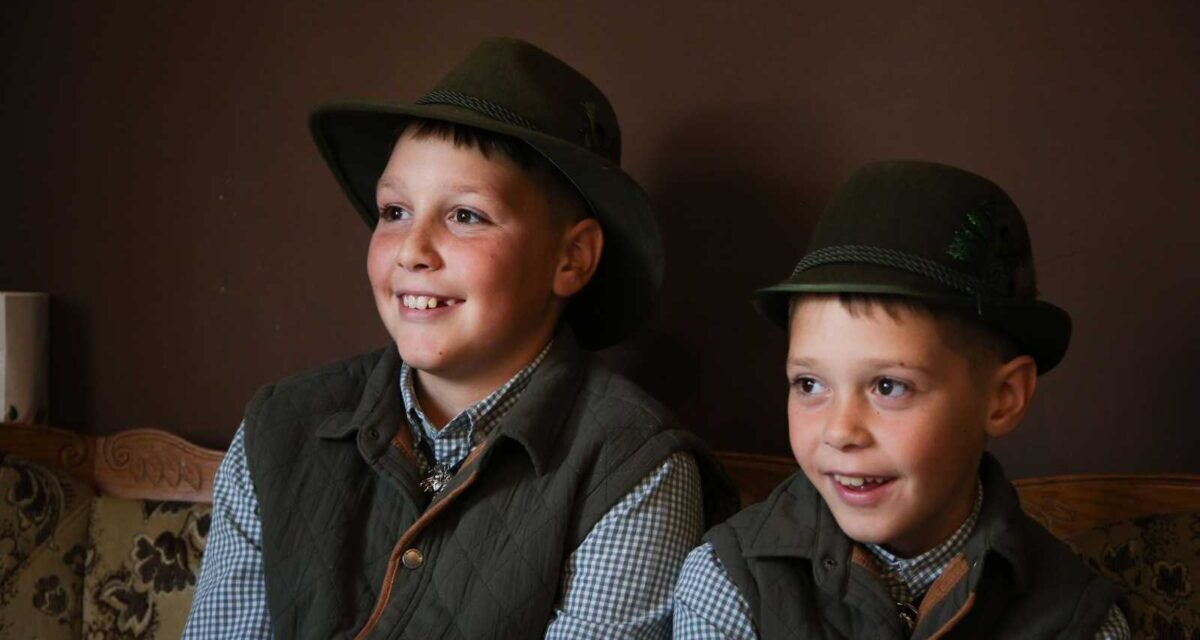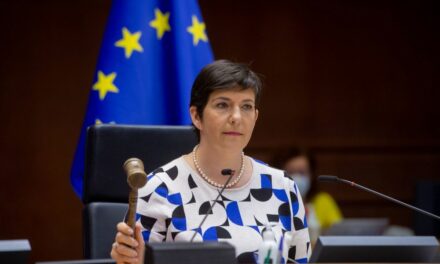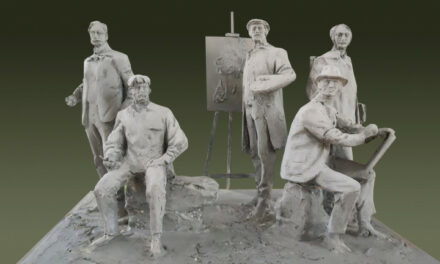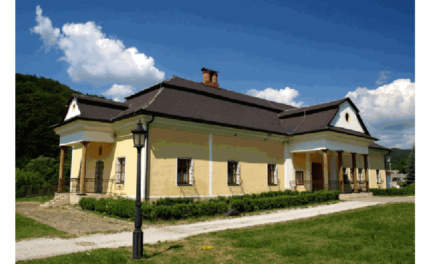The brother and sister run their farm in Csatószeg.
"Mom gave me 100 lei, sent me to the store for bread, but my brother and I bought dumb ducks instead of bread. We went next door and made the deal, bringing home not one but two ducks at the same time. It's true, we also invited the neighbor with us so that we wouldn't get scolded," 12-year-old Györfi Hunor recalls the beginning of their farming with a mischievous smile. His 9-year-old brother, Magor, completes what he has to say, who adds with the seriousness typical of farmers,
"we wanted to farm".
The boys - who study in the third and sixth grades - have been running their farm in Csatószeg for two years. They raise an army of birds, a team of goats, a multitude of rabbits, pot-bellied pigs, donkeys and ponies, take care of their livestock with great skill in the morning and in the evening, milk, milk, and look after the barn. And in the summer, they go to the fields - and as they say, they learned some of their farming activities from YouTube. They invest their pocket money in the economy, they count the days to raise the price of another animal or grain. In the meantime, they do big business with serious farmers at the neighborhood fairs.
We learn about the small Székely farmers in Csatószeg from a Facebook message: their mother sends photos of the children, along with a letter written and drawn by them. Our hearts are bursting at the sight of the enthusiasm of the little ones, we immediately decide to visit them.
The weather is already cooler, we are arriving just before the first snowfall. As soon as we open the gate, the two young men run towards us. Green hat, peacock feather, checkered shirt, equestrian pendant, green waistcoat - up to two farmers. They let me in, extend their hands, don't feel cold, and even rush forward to show the livestock. This is how we get to know 12-year-old Hunor and his 9-year-old brother Magor. As soon as we take a look at everything, their mother invites them into the house, we sit in the kitchen and talk there. As if we have always known each other, the honesty of children breaks down all barriers. We laugh a lot, and sometimes even our breath stops in our astonishment.
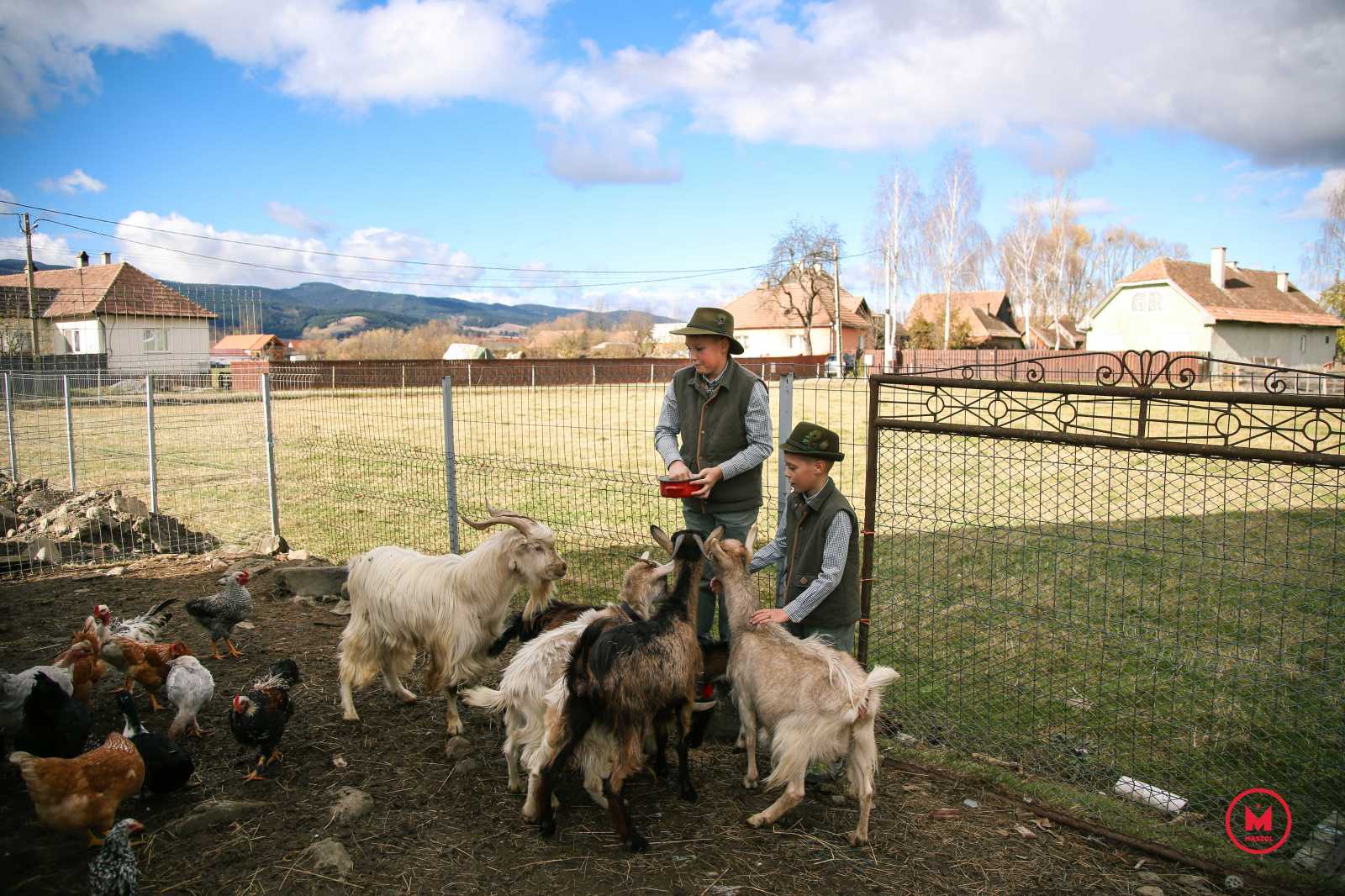
Maszol/Zsuzsánna Fodor
They liked this way of life - the two now shout in unison. Their father also kept three horses and pigs when they were still in kindergarten, and those were the most beautiful times:
they held the paripas in front of the cart, fed, watered and cleaned the cattle, and the family did the field work together with them. Not like nowadays, because a few years ago the only jobs left for the parents were office and electrician work, they go to work in Csíksereda, the economy was liquidated - they wave resignedly.
Their mother stands by the stove and listens to the report, giggles at the adults, and then comments, "we felt that we didn't need the animals, but there was nothing we could do if the children seriously decided that they wanted to be small farmers, we supported them in their choice. While they are dealing with the animals, they don't make phone calls." He adds that it is a special pleasure for them to see how responsibly, persistently and purposefully their two sons work.
Their work is almost never-ending: in two years, the farm has swelled to a large population, various poultry - lily, Székely bare-necked, Isabelle and pinniped hens, roosters -, goats, piglets, rabbits, donkeys and ponies live in the yard, outside, outside in a stable, in the greatest agreement. But none of the animals came easily to the two little owners! They worked for everything, they collected their pocket money, Hunor helped his father in the summer, he worked as a water gas fitter, for which he got paid, he went to work as a day laborer for the neighbors during the hay harvest, so that he could buy animals with the money he earned there.
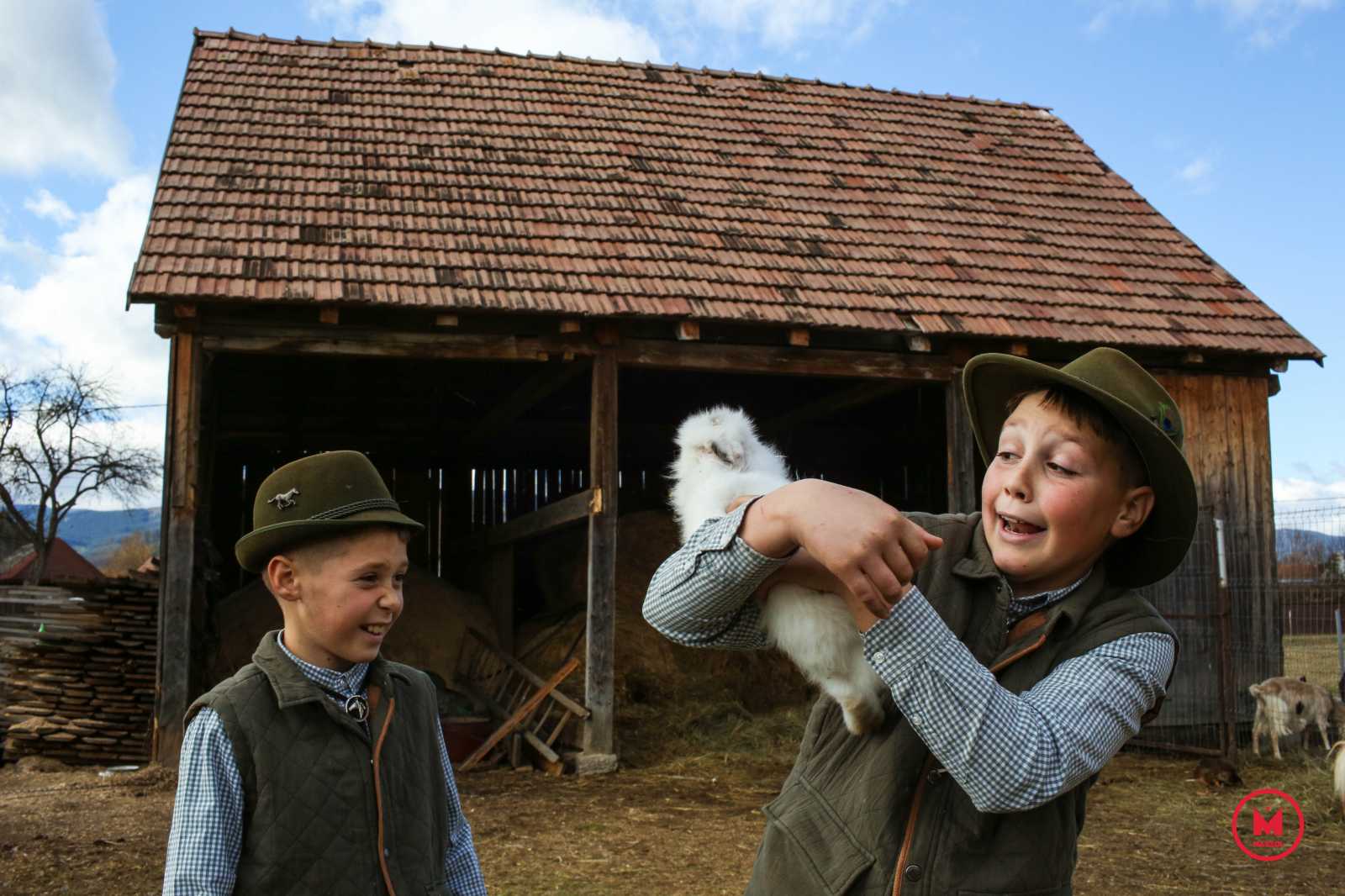
Maszol/Zsuzsánna Fodor
They even invested the money collected at the house dedication in goats. Also, they have mastered the barter trade: they sometimes pay for a hen or a baby goat with a bottle of wine, and if they don't have enough money, they "borrow" it from their parents and pay it back. After all, they even buy the grain for the birds, they need all the money they put aside.
"Dad said if we needed it, we had to arrange it"
- they explain seriously, and then they also instruct them to take care of the "work" in the morning before leaving for school, they get up at six o'clock, they finish everything by seven, and they don't go to bed at night until all their animals are clean and well-fed. They already know the needs of the animals, they don't even need help in milking the goats, or in raising the goats in winter, when the newborns are nursed from feeding bottles. In the summer, haymaking takes place, at which time they go to the fields with their parents and grandfathers to mow and cover. They still do these tasks by hand, only the baling is done with an agricultural machine. It's a lot of work, "but you just have to love it, and then you can get to the end" - they nod in agreement, then add that farm life is also fun.
If, for example, they finish their homework early, they put their donkeys or goats in front of the cart, and they walk the streets of Csatószeg like that. They carry straw, hay, and work tools in the cart - which was carefully built by their great-grandfather and tailored to fit smaller animals and children as well. Also, they spend all their free time outside in their spacious yard, with the many animals: they entertain their goats on the playground - they created it by hiring a day laborer from the neighboring village -, they fly their pigeons far away, they put their hens on a stick in exchange for a small treat, they have to balance on their perches when the stake is corn.
But they also cleverly figured out how to prevent the winter cold from entering the barn: they filled the sacks with straw and blocked the window with it so that their day-old chicks could survive the cold.
The way the two little guys farm in Csatószeg is special: playfulness pervades the entire farm, and when questions arise, but the parents or grandparents cannot answer, or the older farmers are not available, they look up the problem on YouTube. They are already the generation that learns from the Internet, and their example proves that even how to keep animals can be learned from short videos.
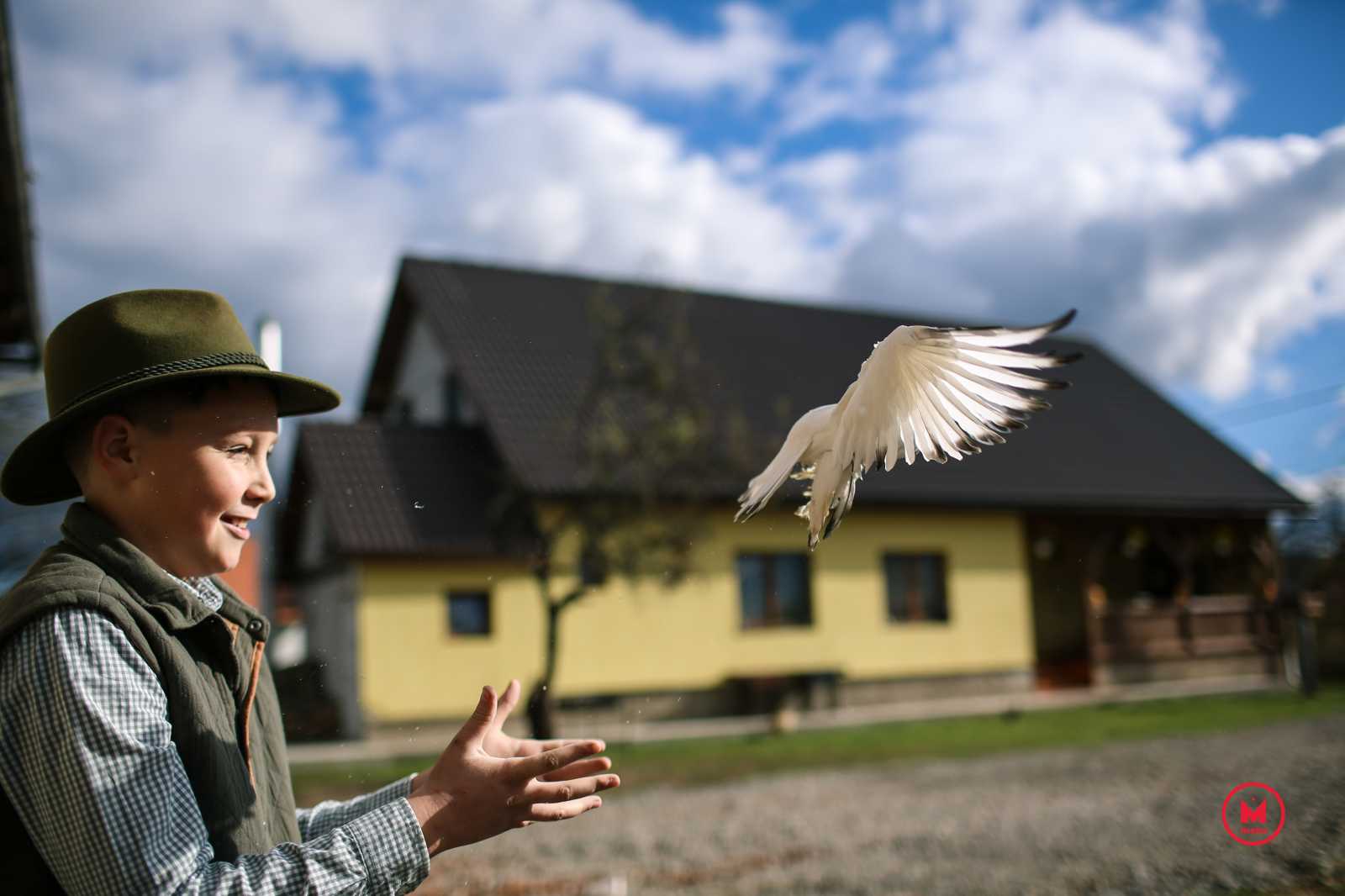
Maszol/Zsuzsánna Fodor
At least they learned how to milk from videos and articles, how to build a playground - thanks to this, the cattle give more milk - and they even learned from the Internet which of their animals they can raise together and which ones cannot stand the company of others . Nine-year-old Magor acknowledges all of this by saying, "we watched how to milk and milked on YouTube". We laugh a lot, even when
they admit that they accidentally raise a boar in the barn.
The older boy, Hunor, tells the story in such a tasteful way that we show that part separately in the form of an audio recording, everyone should listen to how a terrifying boar got into the stable in Csatószeg, who initially outsmarted the four-member family and even four hunters.
@maszol.ro Now you know the story of the wild boar, but the two young men from Székely still have a lot of interesting things up their sleeves. 👦🐗 #Maszol #székelyfiúk #fiatalzda #farmer #farmers #vaddisznó #történet #mesélés ♬ original sound – Maszol
"At Christmas, after the angel came, we bought a pot-bellied pig. But he was a bag cat! We released him in the stable, but he was not like Mazsolla, he had a bigger nose. After a few days, we let him out into the yard, we guarded him, so he attacked him once! Thank goodness our puppy got loose and drove away. We ran in crying because we were so scared. Dad said what are you fussing about, because it's not raining... Dad went out, we told him to take the broom handle, he broke it and then attacked him. We also told mom, and mom said what are you talking about, the three of you were scared next to a thirty kilo pig. Mom also went out, and they circled the yard like that. One time it was mommy, the other time it was the pig," he recalls the story, and everyone who listens to him laughs.
His brother, Hunor, adds to his words, according to what he says, four hunters came to them to shoot the animal, which they believed to be rabid, but when they managed to surround it, they realized that it had tusks and that it was indeed a wild boar mix. Because his mother was a pot-bellied pig raised in the forest, and his father may have been a wild boar.
"When we bought it, the farmer said that it could even be a wild boar mixture, but we didn't take it seriously. Now we know!"
they say laughing. They immediately add, since then he is a little friendlier, he tolerates being taken care of, because they have found the way to his heart:
"If we stroke his belly, he will lie down and start snoring, and while he's sleeping, we'll take out the poop," they also introduce us.
"But next to Hektor the wild boar, we have Rigo, Pa, Gerda, Gréta, Cuc, they are our goats. Our pot-bellied pig is Raisins. Our donkey is chestnut, our pony is elderberry. Among the hens and roosters, only the most favorite ones have a name, since there are 17 of them in the yard: Samu is the most beautiful rooster, but there is Eta and another Eta, the one with a neck. Our animals are guarded by the dog Laci and Tappancs," the two little ones list the livestock with sparkling eyes, and then proudly emphasize that most of the farm's animals roam freely in the yard. They are not afraid of the animals escaping, because they love the place, they would not just leave it. They are grateful, the hens, for example, lay 7 eggs a day, and the goats also give a lot of milk, which the whole family can consume.
When it comes to the serious work they have undertaken, they add that they also have more adult things to do: when they organize farmers' days in the area, they put on green hats and go out with their animals. There, they do business with older farmers, exchange animals and entertain their contemporaries.
"We take the children for a ride on a donkey cart, we allow them to pet our pony, donkey or goats"
they say.
They also invite you to show them how the donkey carting is done. While the animal is tied in front of the small cart, we learn from their mother that the two children were attached to the green hat and farmer's clothes, so much so that they were able to sell a goat in order to buy suitable clothing for themselves. This is how they saw it from the older farmers, and they knew that a serious farmer wears a real green hat.
Their mother also informs us that the affection for animals ignited in the hearts of the two young men quite early: they were in kindergarten when they collected all the stray cats in the village, and there was a year when they fed 22 cats in their yard. Even now, it is typical to take in abandoned puppies, and all of them are looking for owners. Full of pity and love, because they know that many mercilessly throw them out on the street, in the trash or in the river. They are really responsible children - we are told when they testify to this level of responsibility.
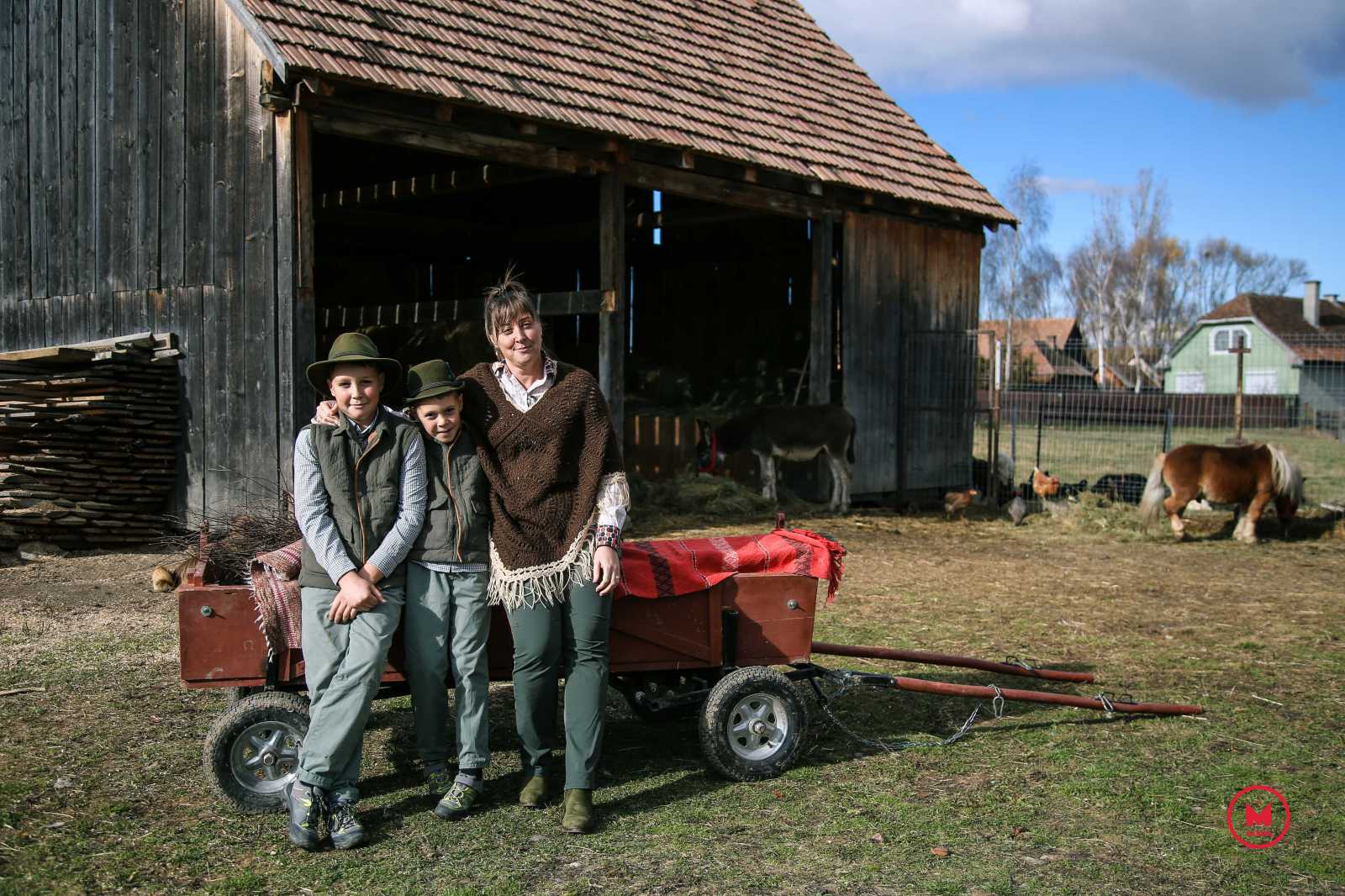
Maszol/Zsuzsánna Fodor
They share it proudly, they still have big plans, as they want to farm for the rest of their lives. "Since the pony is skittish, we decided to castrate him, otherwise we won't be able to get him in front of a cart, because he jumps on everything and wins. But we also want to buy a colt that we can tame and a calf to bring back the old way and put a yoke around its neck, and we'll put it in a cart." It is strange how the typical expressions of the peasant world come out of the mouths of the two children. Their words testify to a great deal of knowledge, something we have only heard so far from wealthy farmers.
But in order not to lose the playfulness from their fairy tale, they whisper quickly and as quietly as possible that they would add a llama to the farm, but they still have to convince the parents. However, if he arrived, he could be petted until daylight, and together with his brothers, they could even open a petting zoo in Csatószeg. Their mother smiles and pats their heads, and we, looking around the yard, believe that it will be like that.
Featured image: Zsuzsánna Fodor

